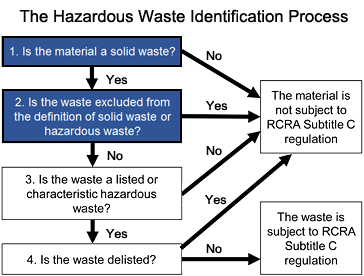The Best Guide To Reclaim Waste
The Best Guide To Reclaim Waste
Blog Article
Reclaim Waste - An Overview
Table of ContentsThe Definitive Guide to Reclaim WasteThe Greatest Guide To Reclaim WasteReclaim Waste Things To Know Before You Get ThisUnknown Facts About Reclaim WasteThe Ultimate Guide To Reclaim Waste
Residential sewage waste refers to the waste and items from a household septic storage tank. The correct monitoring and disposal of residential sewer waste need liquid waste to be moved to a sewage treatment plant where the correct methods and tools are used to purify and dispose of waste.
Business waste commonly includes possible dangers, such as flammable products or a mixture of liquid and solid waste products, and requires an advanced and comprehensive disposal procedure. The disposal of business waste usually entails the filtration of waste before transport to make certain secure and appropriate disposal. Industrial waste is produced from byproducts and overflow of commercial processes and manufacturing.
This type of waste can not make use of the very same sewage administration transportation or processes as septic or industrial fluids. The hazardous waste administration process calls for the examination and screening of liquid waste before it undergoes the disposal process (liquid waste disposal melbourne). Runoff waste is the liquid waste that originates from runoff and excess stormwater in very inhabited areas or cities
Runoff waste can cause contamination and flooding otherwise taken care of correctly. Find out a lot more concerning sewer cleaning and waste monitoring. Guaranteeing appropriate waste management can avoid disasters and minimize environmental damage. Both people in household settings and professionals in business or production industries can profit from comprehending the processes and laws of liquid waste management.
3 Simple Techniques For Reclaim Waste
Get in touch with PROS Services today to find out about our waste management and disposal services and the appropriate means to take care of the fluid waste you produce.
(https://share.evernote.com/note/7e2c20e2-4e08-1523-1aa2-d06cf7e27761)Do you understand what happens to your water when you draw the plug, purge the commode or drain the washing device? No? Well, it's worth recognizing. This so-called 'wastewater' is not only a vital resource but, after therapy, will be launched to our land, rivers or the ocean. Made use of water from toilets, showers, bathrooms, cooking area sinks, laundries and commercial procedures is referred to as wastewater.

water utilized to cool equipment or tidy plant and tools). Stormwater, a type of wastewater, is overflow that streams from farming and metropolitan areas such as roofs, parks, yards, roadways, courses and rain gutters into stormwater drains, after rain. Stormwater flows without treatment straight to regional creeks or rivers, eventually reaching the ocean.
Unknown Facts About Reclaim Waste
In Queensland, the majority of wastewater is dealt with at sewage treatment plants. Wastewater is transferred from residential or commercial websites through a system of drains and pump terminals, recognized as sewerage reticulation, to a sewage therapy plant.
The Division of Natural Resources recommends city governments concerning managing, operating and preserving sewerage systems and therapy plants. In unsewered locations, city governments may require owners to set up individual or family sewer therapy systems to deal with domestic wastewater from toilets, kitchens, restrooms and washings. The Division of Natural Resources authorizes using house systems when they are shown to be effective.
In some new communities, treatment of some stormwater to eliminate litter, sand and crushed rock has actually started using gross pollutant traps. Wastewater therapy happens in four phases: Removes solid matter.
Wastewater then streams into large storage tanks where solids clear up and are eliminated as sludge. Oil and residue are skimmed from the surface. Utilizes little living microorganisms referred to as micro-organisms to break down and get rid of staying liquified wastes and great particles. Micro-organisms and wastes are included in the sludge. Eliminates nitrogen and phosphorus nutrients that could trigger algal blooms in our rivers and intimidate aquatic life.
Reclaim Waste Can Be Fun For Everyone
Nutrient elimination is not readily available in any way sewage treatment plants due to the fact that it calls for pricey specialized devices. It is becoming a lot more common in Queensland. Clear fluid effluent generated after treatment might still consist of disease-causing micro-organisms. If this effluent is released right into waterways such as rivers or the sea, the micro-organisms will at some point die out.

This typically means wastewater needs to be dealt with or contaminants gotten rid of prior to it can be released to waterways. Many wastewater streams right into the sewage system. Under the Act, regional governments carry out authorizations and licences for environmentally pertinent activities (Ages) entailing wastewater launches that may have a regional effect. The department provides approvals and licences to Periods involving wastewater launches that might have a regional or statewide influence.
The Best Strategy To Use For Reclaim Waste
Or else, examples are considered research laboratory analysis. Typically many tests are needed to develop the degrees of each of the various toxins such as oils, hefty metals and chemicals in water. Tracking offers valid details about water quality and can verify that licence conditions are being met. The information obtained via monitoring supplies the basis for making water top quality decisions.
Report this page